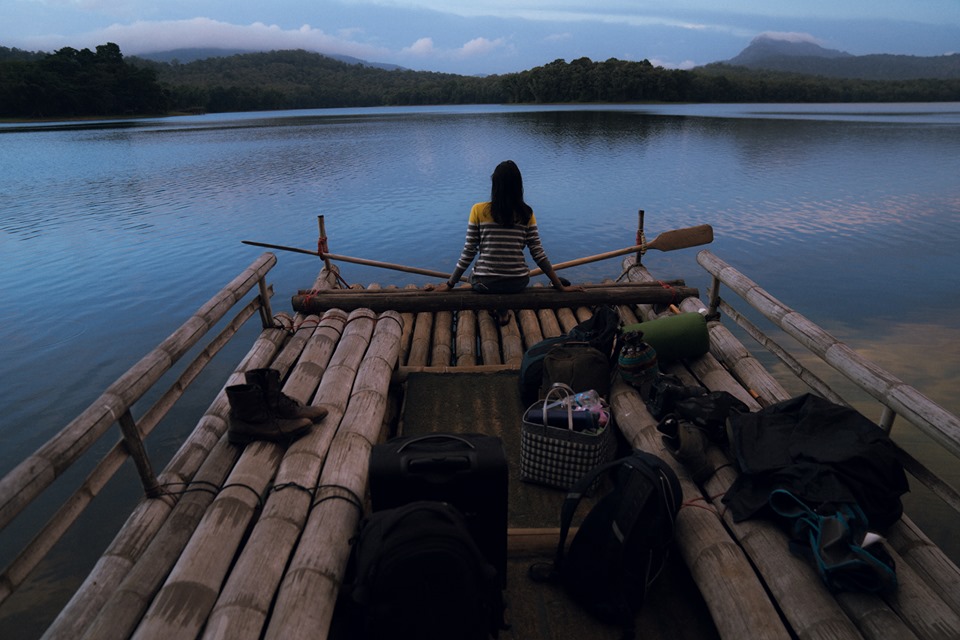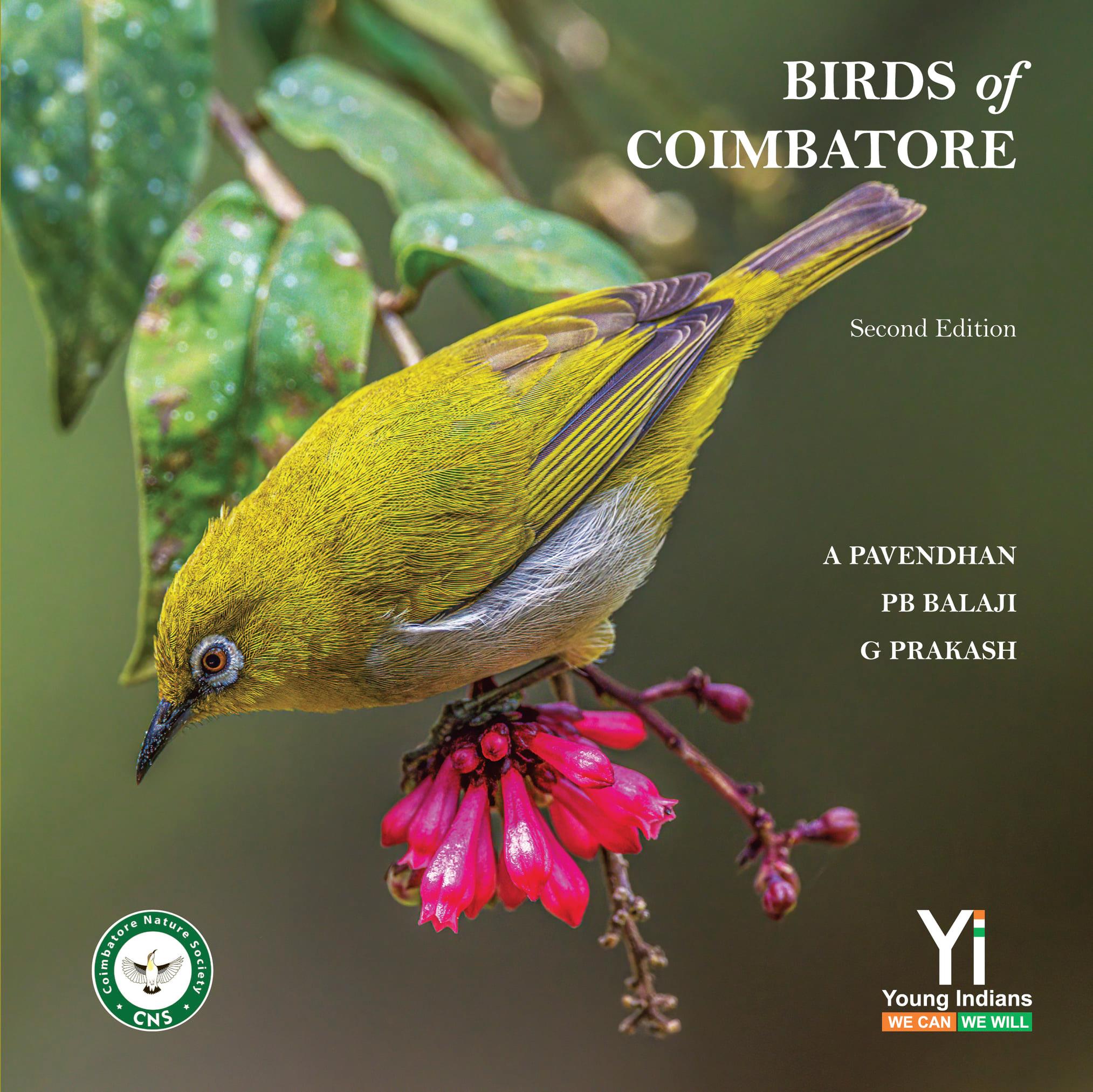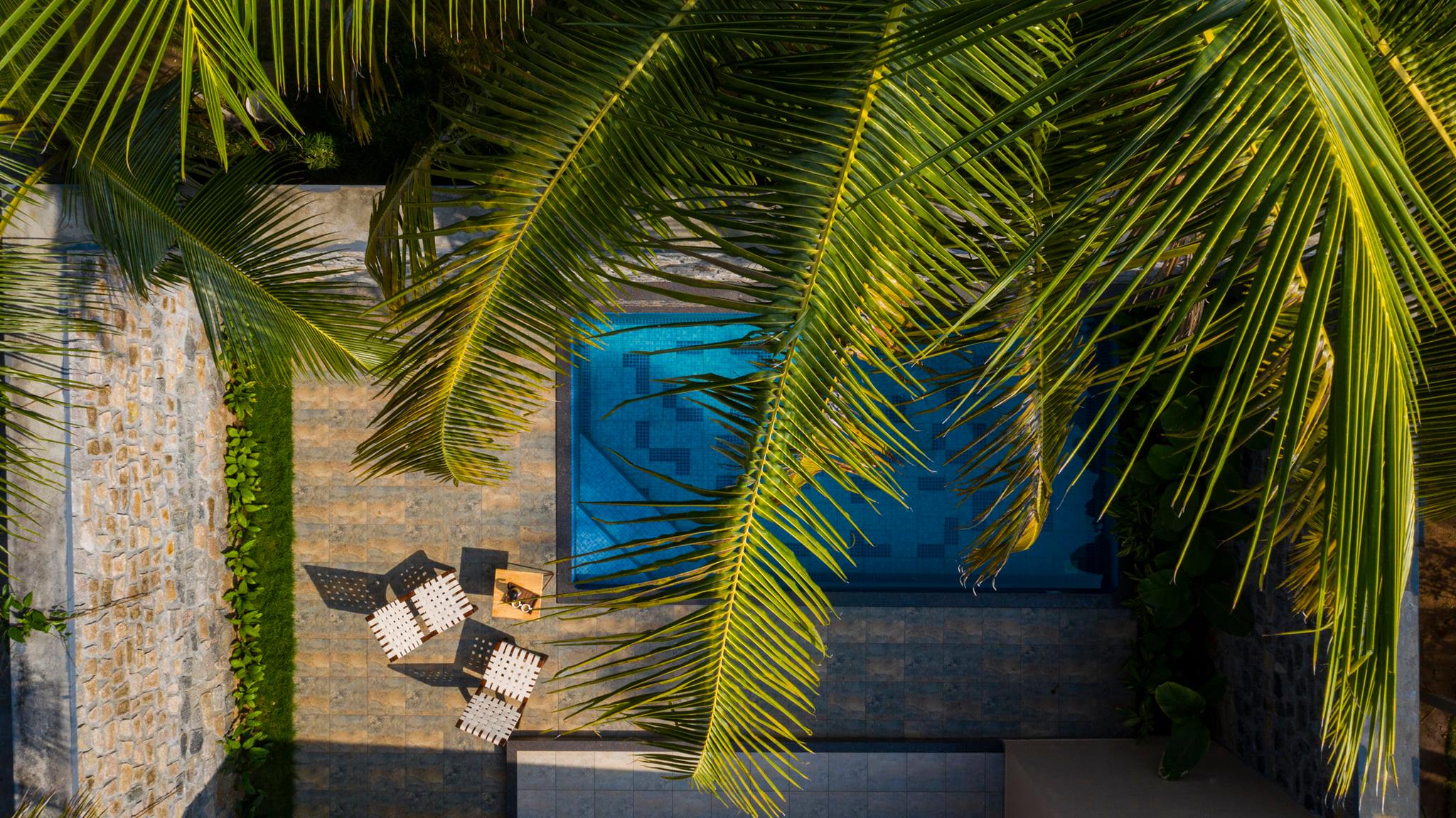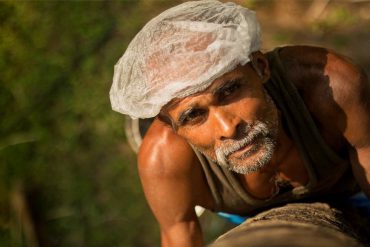Hurried shuffles and whispered giggles suddenly cut through the otherwise silent and unassuming tiger reserve. A group of school students were quietly laughing at a monkey couplet playing catch in the towering trees. The trunks here look unhinged and the branches, a lot more chaotic. Inside the 643 sq. km. Parambikulam Tiger Reserve, it was business as usual as a guide got assigned for the course of my stay. “Day safari and treks are free for school students from Kerala” informed Shanmugam, my guide, as he looked at the hushed commotion.
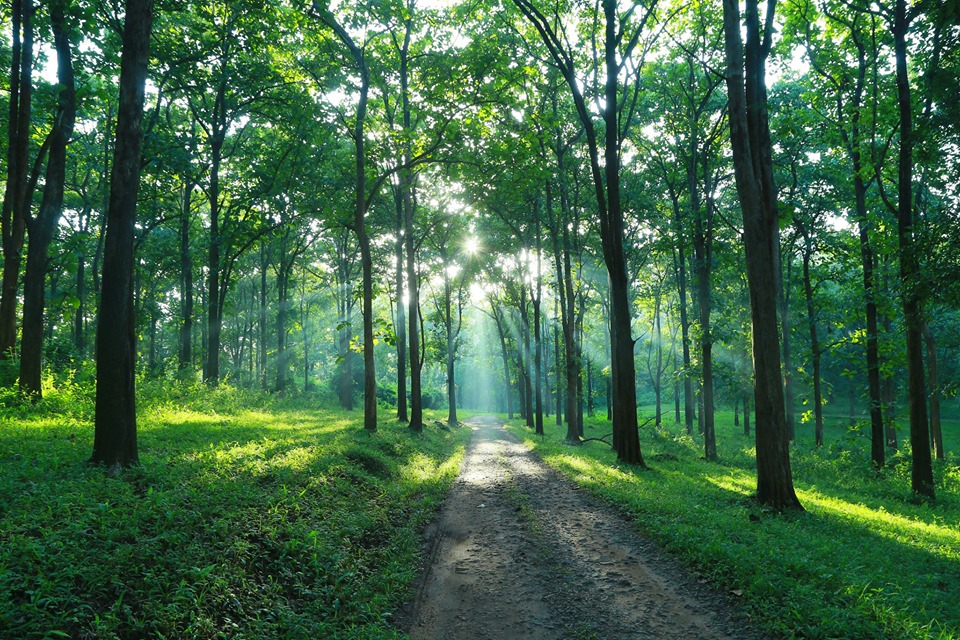
Shanmugam, with a head full of knowledge and I, with a heart full of anticipation, set out in our grunting SUV to take-in everything that these pristine, protected forests of Parambikulam had to offer. Before going to my room—Peruvari Jungle Nest Stay—which requires a short raft ride to one of the small islands in the reservoir, we decided to visit a few attractions the reserve offers.
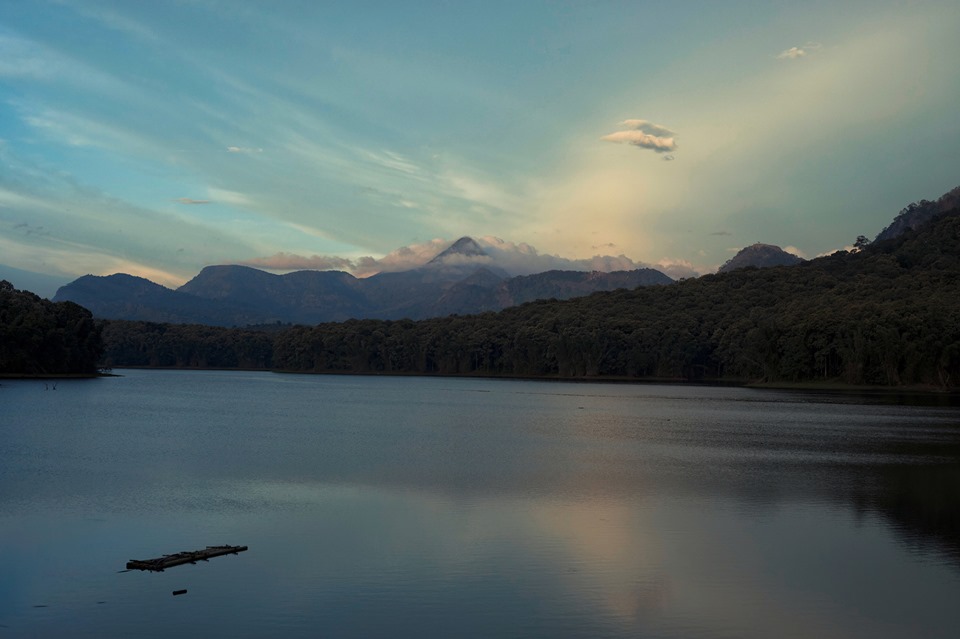
Our first stop was the Thunakkadavu Dam, where I met Mr. Prakashan. He has been living here as a guard and a watcher for almost 60 years. His wide-eyed enthusiasm was contagious and for that short period of time, I was vicariously living through his stories of encounters with tigers, elephants, and crocodiles over the years. “There have been no animal attacks on humans in the reserve,” he answers reading my mind. A lone Indian Cormorant came and perched on a protruding branch near us, unbothered by our presence. I wondered what it would be like to live in a place where wildlife and humans co-existed harmoniously.
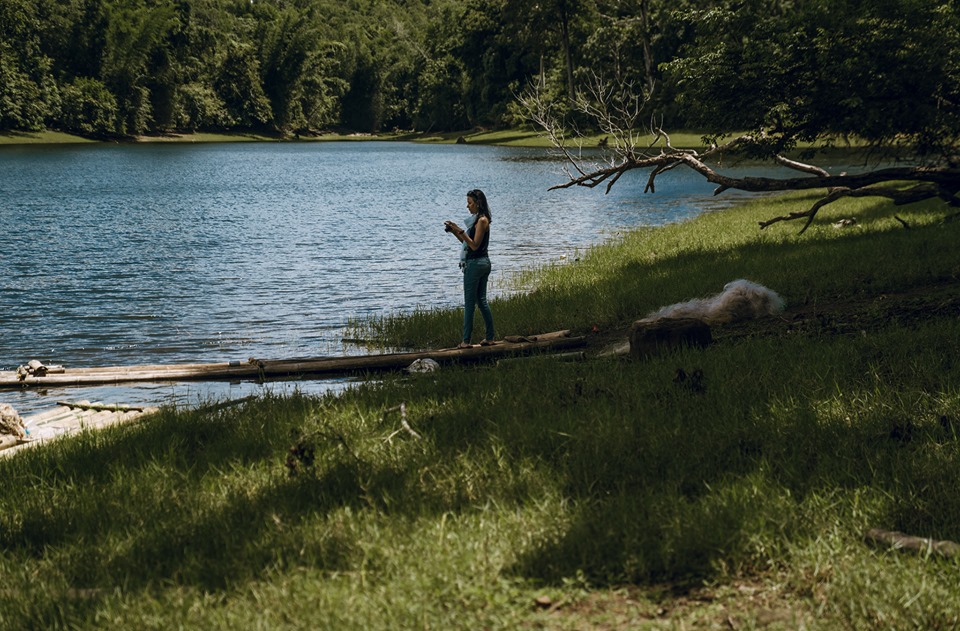
As we drove onwards and deeper, the blur of teak trees and occasional bouts of wildlife kept us company. We spotted a Racquet-tailed Drongo and heard the sweet whistles of Malabar Whistling Thrush before stopping at a small clearing that led to a vast water body. Few guards were building a bamboo raft which they fondly called ‘paandi’. Each raft takes 45 days to build and lasts for about 11 months, one of the guards announced suddenly, “this is almost always the first question people ask,” he said smiling sheepishly. Shanmugam pointed out the island where we would be staying at and a mild feeling of thrill pooled in my stomach.
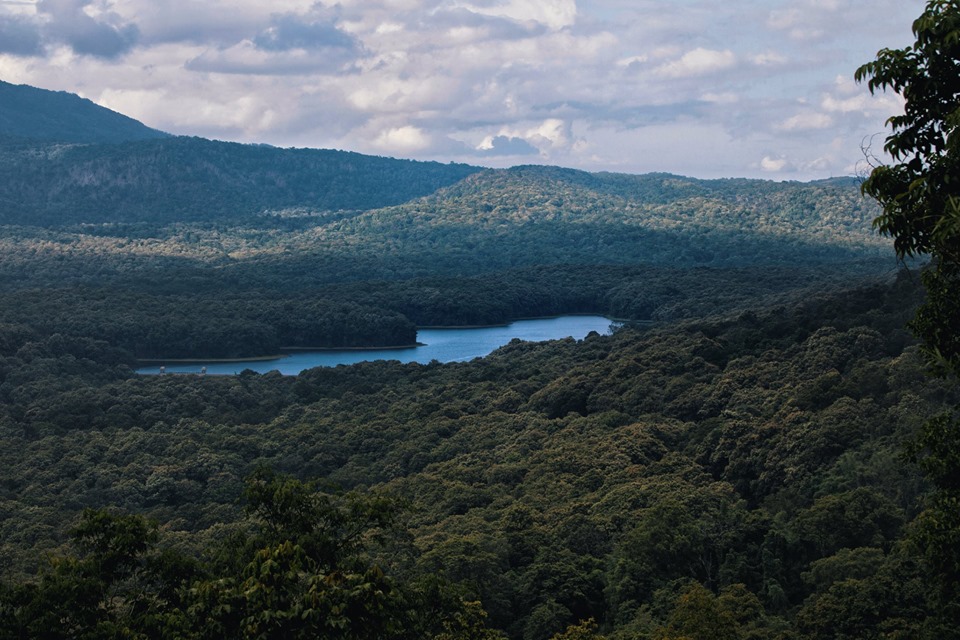
We then drove to the dam viewpoint which was all-consuming with the panorama of the huge reservoir with its little-dotted islands and thick forest spread gloriously. We finally make our drive to the Parambikulam town and it was not surprising to see that the town and its people are as unassuming as the reserve. We had a satisfying lunch at the Lakshmi mess and headed towards five neatly lined shops to buy some vegetables and groceries for our dinner.
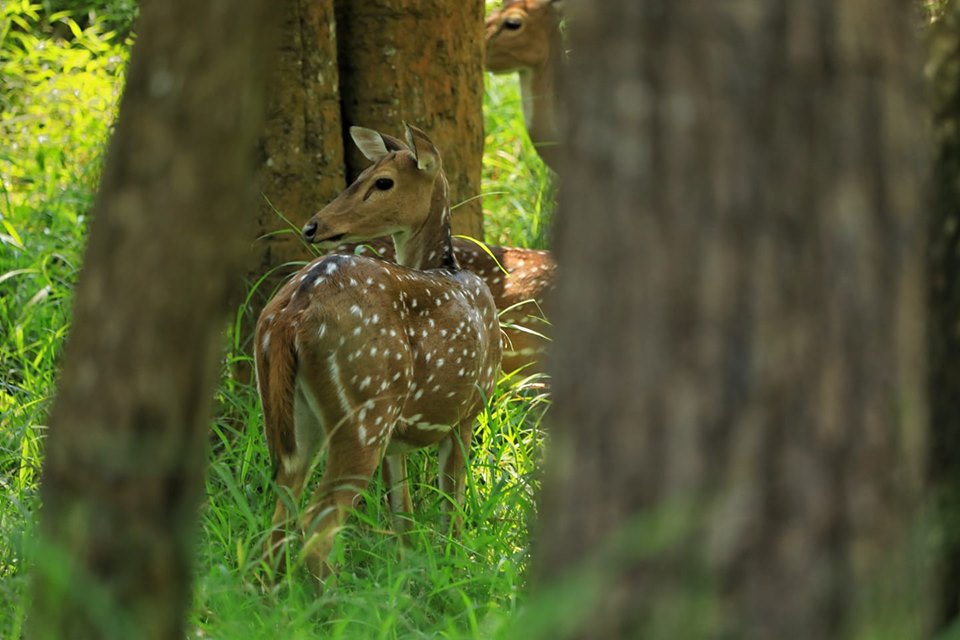
We observed a herd of spotted deer frolicking while the pecks of a woodpecker echoed in the air as we drove to meet our boatmen who would also be cooking our dinner. They wasted no time in sitting us down and made us kattan chai (black tea) in their makeshift bamboo tent by the shore of the reservoir.
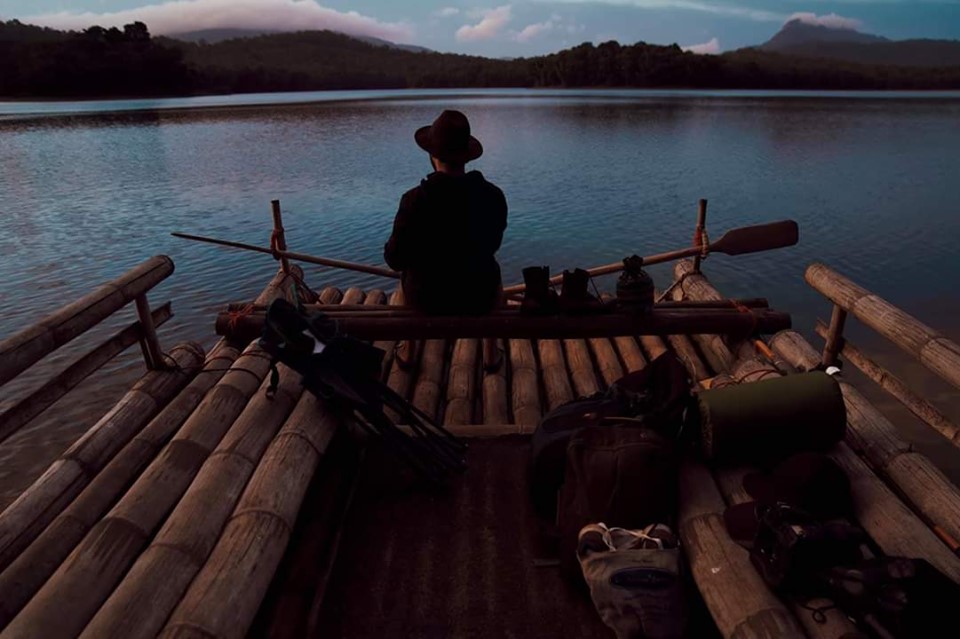
Gentle laps of still water and strained creaks of bamboo swaying heavily in the wind surrounded our senses as we sipped our hot teas in our anchored raft. We decided to take a short break here and conversed about life in these forests, the wildlife, and rains.
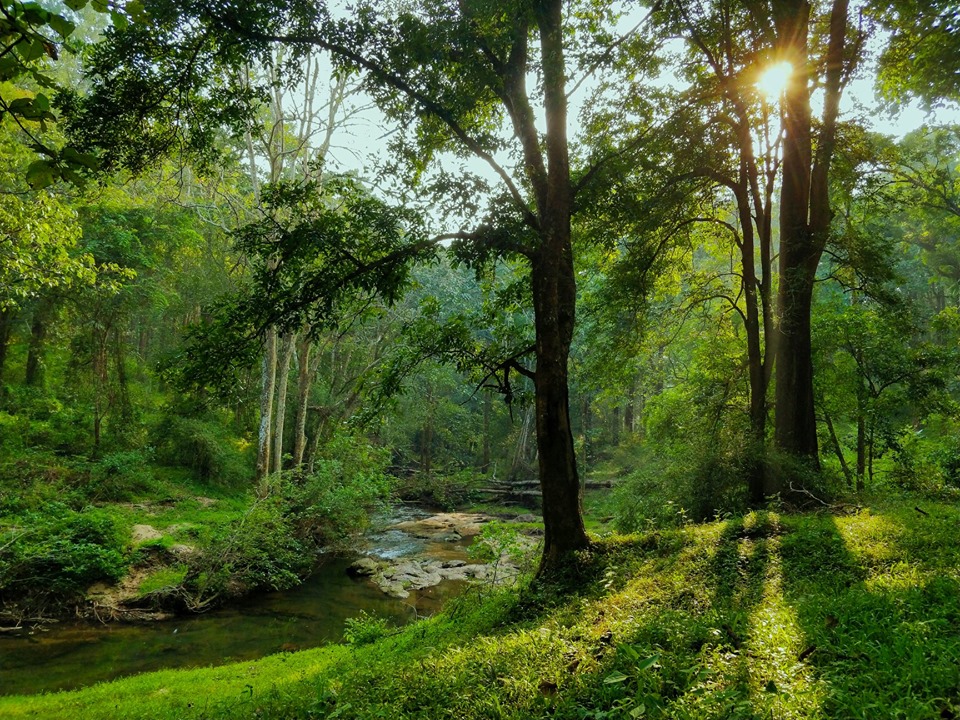
Bidding them goodbye, for the time being, we got on the SUV briskly to visit the famous Kannimara teak. It is one of the largest living teak trees in the world and more than 460 years old. The sheer size of the tree, an impressive 39.98m high and 7.02m wide, doesn’t feel imposing. The native tribes of Parambikulam worship the tree and fondly call it the ‘Gentle Giant.’ It is almost 4:00 pm when we started our safari.

Trying our best to drive to the pulse of the deciduous forest, the first animal we come across was an Indian Gaur. Sambar, barking deer, wild dogs, and Nilgiri langurs also presented us with memorable sightings.
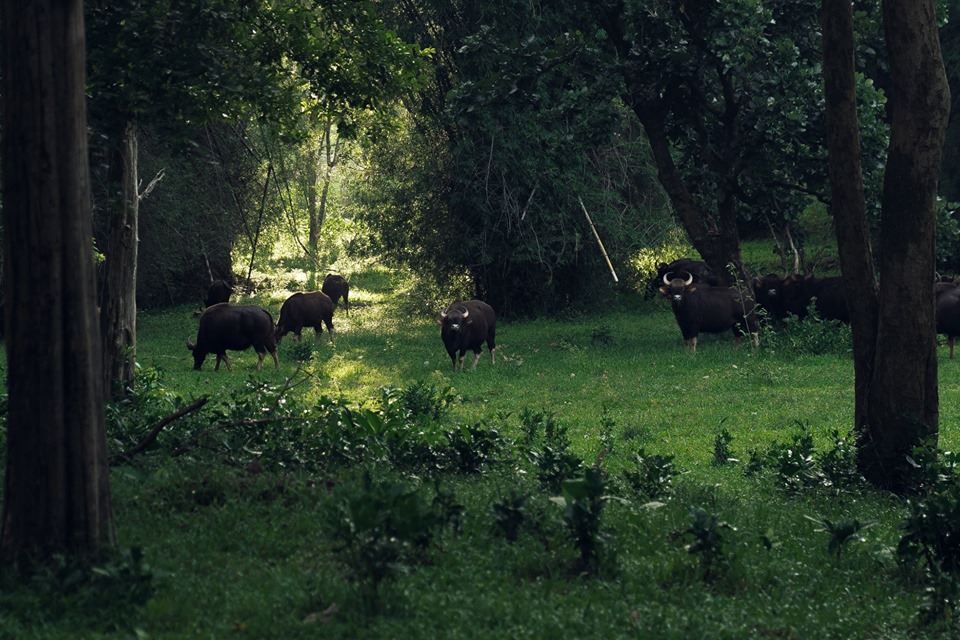
We also spotted plenty of winged beauties like Lesser fish Eagle, Godlen Oriole, Asian Paradise Flycatcher, White-throated Kingfisher, Racquet-tailed Drongo, Brown fish Owl, and Malabar Whistling Thrush. Towards the end of our safari, the noisy chatters of jungle babblers marked the end of the day in the forest. We decided to drive back as the skies started darkening.
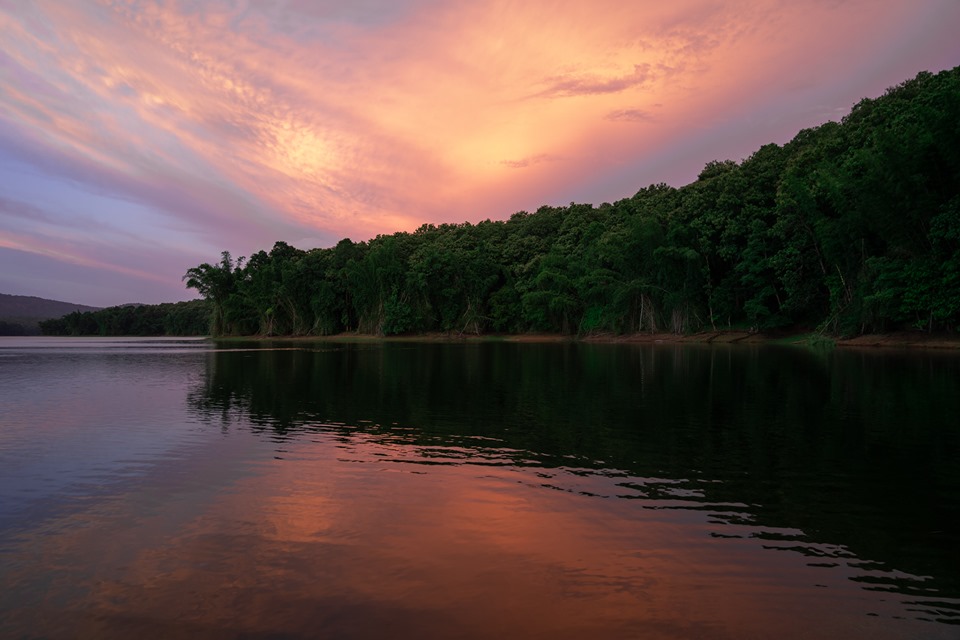
Loading up our bags in the raft, a 15-minute ride took us to our room. The bamboo ride, though short, is a visual treat and a sensory explosion. Perched prettily at the edge of the Peruvari island is a humble treehouse with a room and balcony overlooking the reservoir.
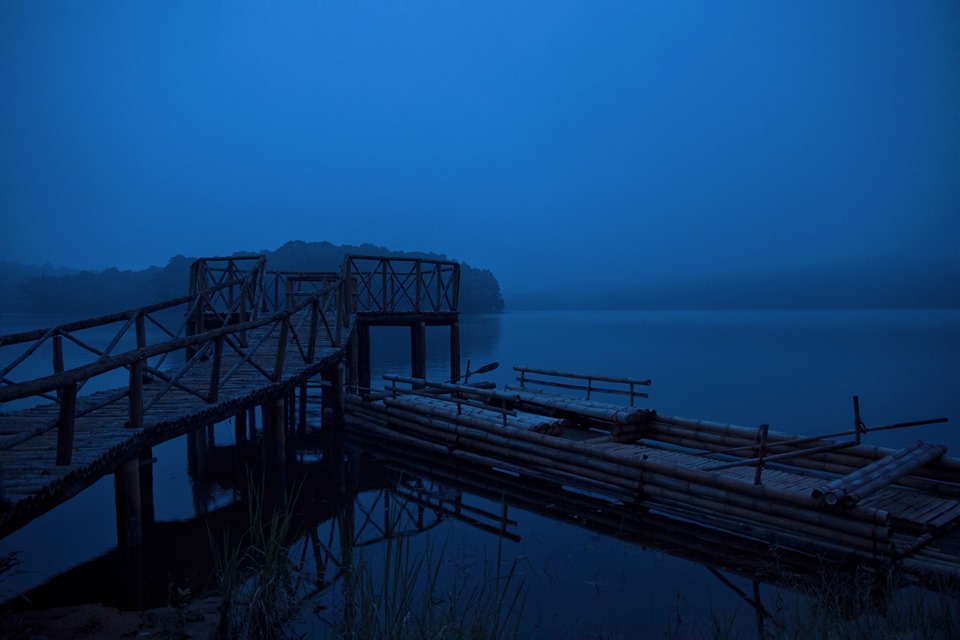
There is a circular platform protruding from underneath the treehouse extending a few meters into the water body. As the night sky blanketed the island and loud silence ensued us, we gathered for dinner by a small campfire. I retired for the day with a full stomach, content heart, and exciting plans for the following day.
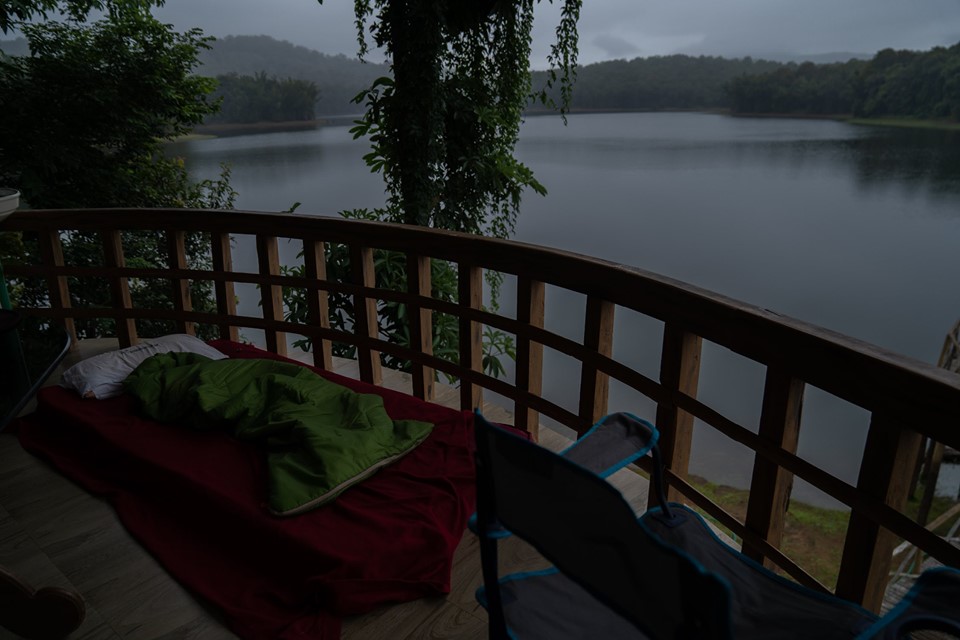
I woke up to the relentless pecks of a white-browed wagtail on the roof at 5:45 am and was greeted with a view of heavy mist rolling atop the water outside the treehouse. Around 6:30 am we started our trek in the Anapadi forest. Common Myna, Blue-winged Parakeet, Red-whiskered Bulbul, Indian Swiftlets, Jungle Babblers, Kingfisher, and Black Eagle are some of the birds we spotted. After a 90- minute trek, we exited the forest and had breakfast in the Vengoli Café with the company of other guests, forest officers, guides, naturalists, and guards of the reserve.
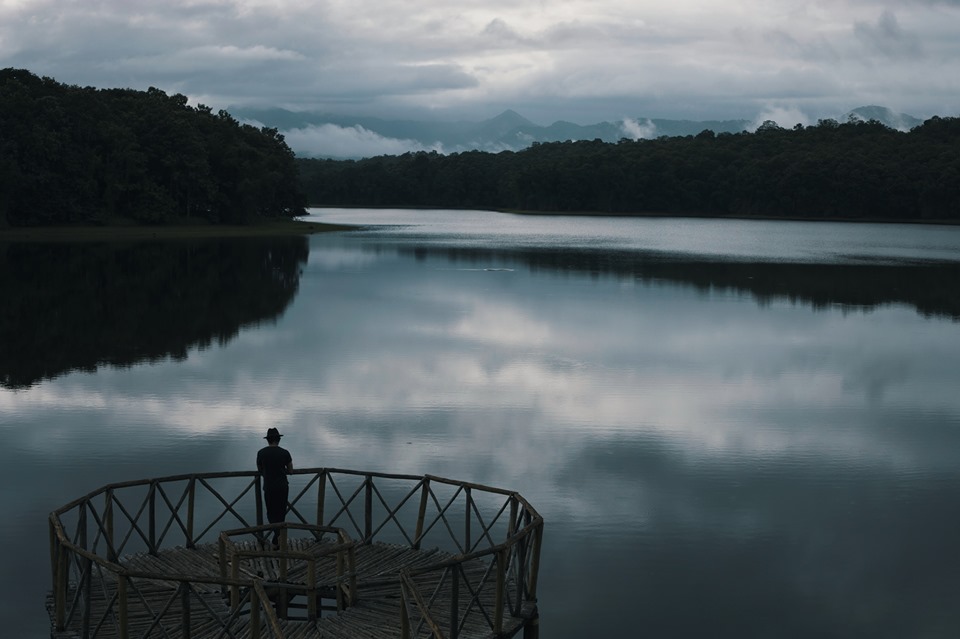
As we rowed back to the treehouse one last time, one of the boatmen asked how my stay was, “rewarding,” I answered in a heartbeat. During our shared time in the raft rides, they talked about their tight-knit tribal community, their children who have moved to cities, their old age, their love for building rafts, and oh-so-lovingly about their ‘home’—the Parambikulam Tiger Reserve.
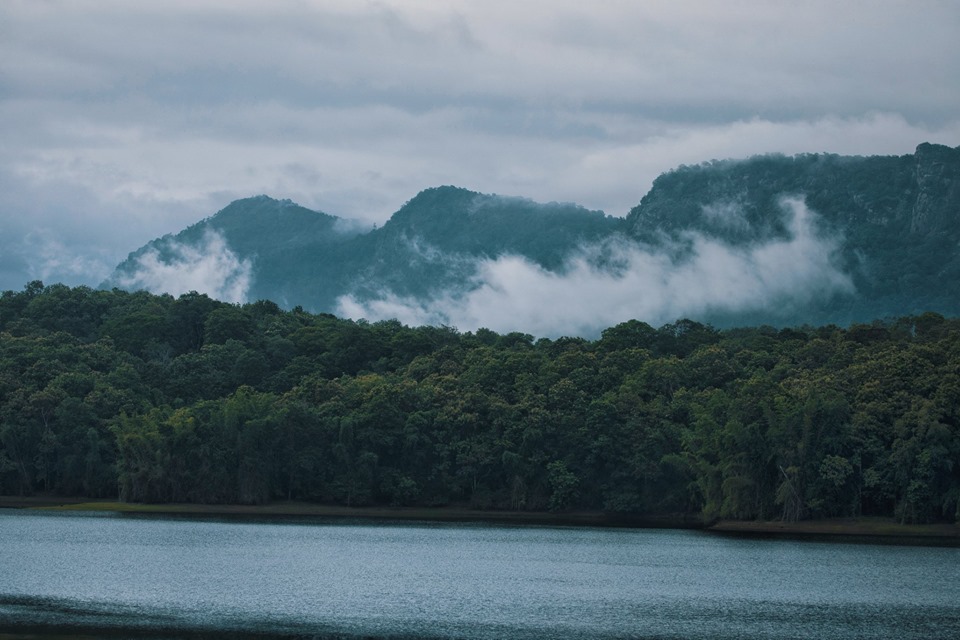
A short glance into this paradise has left me wondering how it would be to have a forest and reservoir as home. As unassuming as the reserve and its people may seem in the first glance, they are brimming with so much life and so many stories that us as outsiders would never be able to fully see or experience. I leave with a heavy heart even as I rejoice my time spent in this wonderful haven that serves as the home for both wildlife and mankind.

